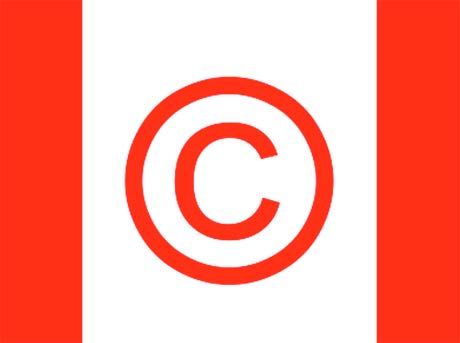At long last, the Canadian government has introduced new copyright laws. As we recently predicted, a new Copyright Act tabled by the Conservative government Wednesday (June 2) does include stricter laws around consumers tampering with digital locks on content such as DVDs, electronic books and software, as well as for those who share files illegally. But what we didn't predict was that the government would ease up on penalties for downloading or uploading copyrighted material, as well as allowing more freedom for consumers to copy and transfer copyrighted materials.
According to an official statement made by Heritage Minister James Moore, the new bill "offers a common-sense balance between the interests of consumers and the rights of the creative community."
The new legislation would make the punishment of breaking locked or encrypted products, even for personal use, a maximum $1 million and five years in jail, if the new copyright law is eventually passed in the House of Commons. Meanwhile, penalties for illegally downloading music or movies were lessened from a maximum of $20,000 per protected work down to a one-time payment of $5,000, as long as they aren't illegally sharing music for profit.
Also, Ottawa is going after pirating websites in a big way, giving copyright owners more power to shut down websites that support file-sharing. The bill is also introducing a stiff $1 million penalty for pirates who are convicted of cracking copyright encrypted materials for the purpose of selling them.
If a user is found to be sharing files illegally, the new law would require Internet service providers to notify users that they have infringed on a copyright (right now notices are voluntary). ISPs would then have to keep the personal information of copyright violators and turn to over to officials if ordered by the courts to do so.
On top of this, the new bill focuses on easing up on consumers who transfer and copy music and other forms of entertainment in their home. Activities such as home taping of television and copying CDs for backup and music transferring purposes are essentially being legalized. So now consumers can copy materials for later viewing or listening and not be punished, as long as they don't resell, present publicly or create permanent libraries of those duplicated works. This means the man officially can't slap the cuffs on you next time you transfer music to your iPod, or tape an episode of South Park.
Another interesting side note to the new legislation is being referred to as the "YouTube exemption," allowing Canadians the freedom to create video mash-ups of commercial works for posting online.
According to an official statement made by Heritage Minister James Moore, the new bill "offers a common-sense balance between the interests of consumers and the rights of the creative community."
The new legislation would make the punishment of breaking locked or encrypted products, even for personal use, a maximum $1 million and five years in jail, if the new copyright law is eventually passed in the House of Commons. Meanwhile, penalties for illegally downloading music or movies were lessened from a maximum of $20,000 per protected work down to a one-time payment of $5,000, as long as they aren't illegally sharing music for profit.
Also, Ottawa is going after pirating websites in a big way, giving copyright owners more power to shut down websites that support file-sharing. The bill is also introducing a stiff $1 million penalty for pirates who are convicted of cracking copyright encrypted materials for the purpose of selling them.
If a user is found to be sharing files illegally, the new law would require Internet service providers to notify users that they have infringed on a copyright (right now notices are voluntary). ISPs would then have to keep the personal information of copyright violators and turn to over to officials if ordered by the courts to do so.
On top of this, the new bill focuses on easing up on consumers who transfer and copy music and other forms of entertainment in their home. Activities such as home taping of television and copying CDs for backup and music transferring purposes are essentially being legalized. So now consumers can copy materials for later viewing or listening and not be punished, as long as they don't resell, present publicly or create permanent libraries of those duplicated works. This means the man officially can't slap the cuffs on you next time you transfer music to your iPod, or tape an episode of South Park.
Another interesting side note to the new legislation is being referred to as the "YouTube exemption," allowing Canadians the freedom to create video mash-ups of commercial works for posting online.




